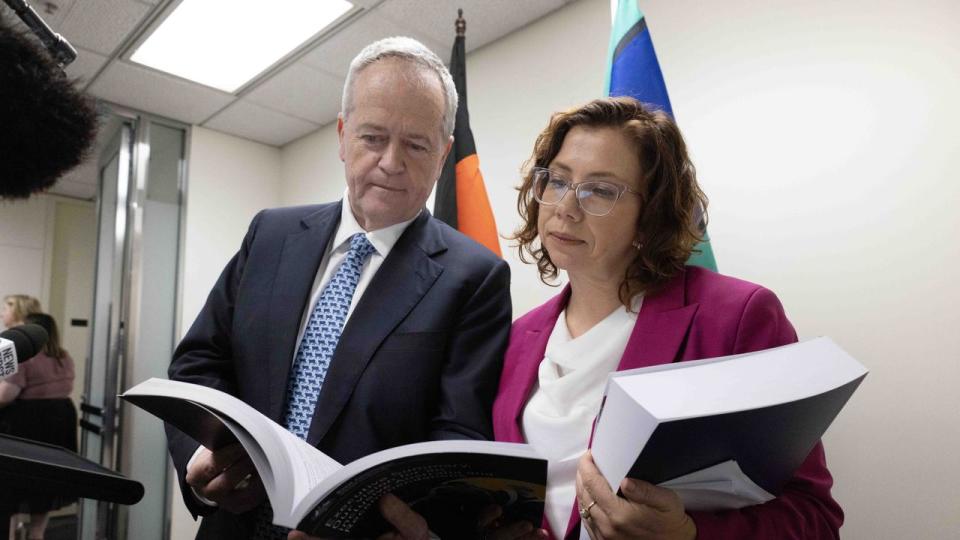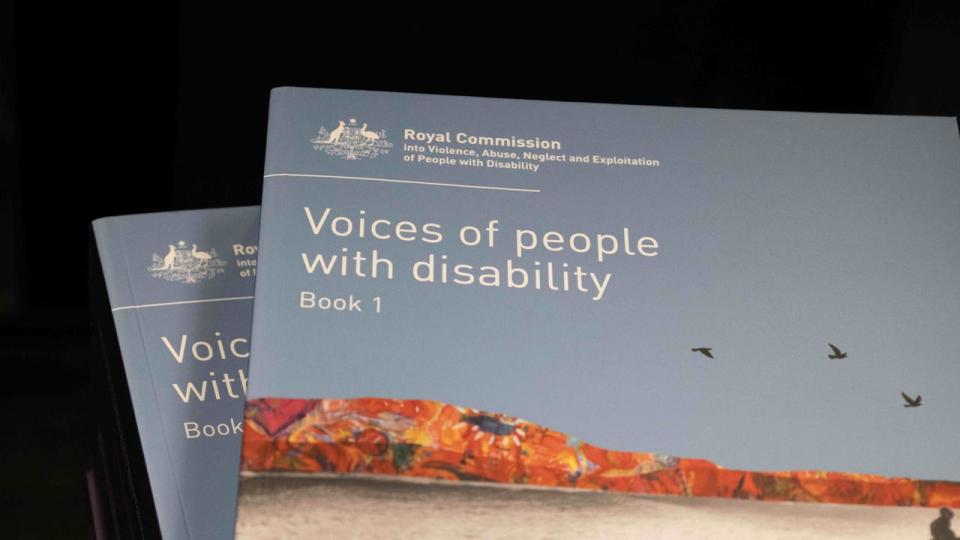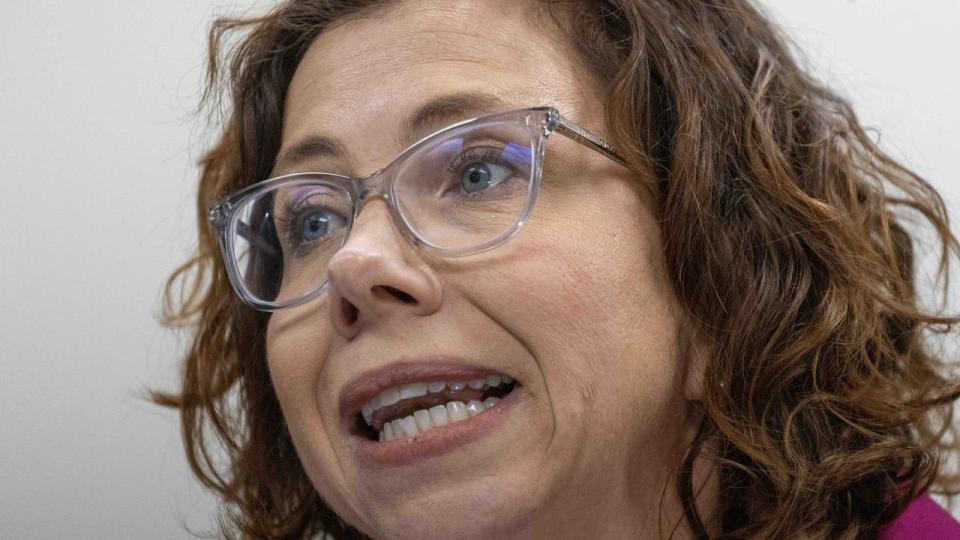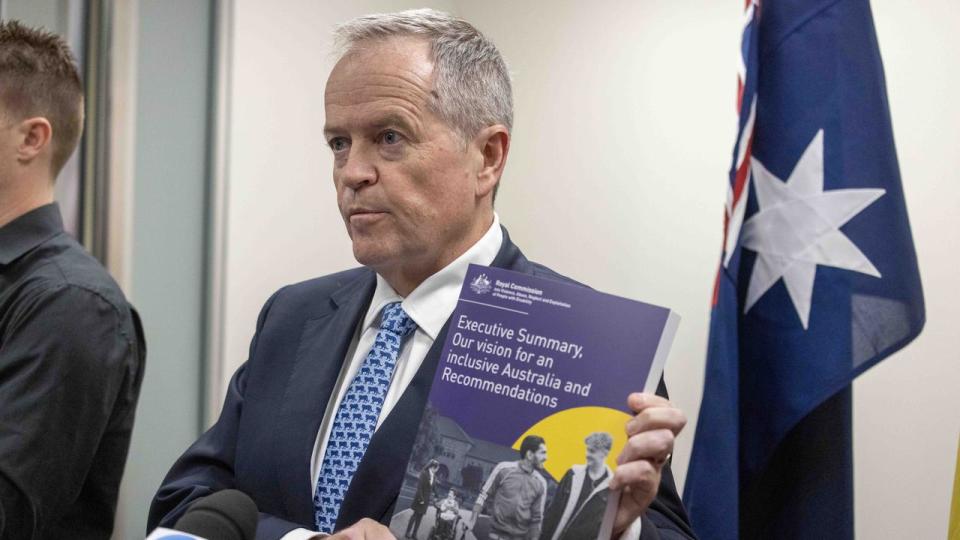Student ‘kicked in shins’ had fear of bathing

A shocking report has exposed widespread rates of abuse and neglect facing millions of Australians living with disability, including reports of children being beaten by their own teachers and disability support recipients being tied down with belts.
On Friday, findings from a 4½ year investigation into Australia’s disability care sector was released to the public.
The final report, which contained 222 recommendations, described systemic rates of violence and discrimination facing around 4.4 million people across the country.
Disability Services Minister Bill Shorten described the findings as “harrowing” and said the government would deeply consider the more-than 9000 stories heard during the inquiry.
“This royal commission is genuinely a historical moment and it does remind Australians that for too many people with disability, they’re subject to violence, abuse, exploitation, neglect and exclusion,” Mr Shorten said on Friday.

Since it began in 2019, the $599m royal commission has heard personal accounts of discrimination, sexual assault, abuse in group homes, and violence from tens of thousands of people with disabilities and from their families.
More than half of people with disability have been physically or sexually abused since age 15 in Australia, the report said, compared with 38 per cent of adults without disability.
“Forty-six per cent of people with disability have been subjected to violence by a stranger,” the report read.
It’s estimated that every year, 550 people with disability experience a potentially avoidable death as a direct result of neglect and exploitation within the health system.
Commissioners said that shifting wider attitudes towards disability was “critical” to ending high rates of abuse and promoting more inclusive society.
“People with disability often confront dehumanising attitudes and are treated as ‘different’,‘other’ and ‘less than’,” the report said.
“Low expectations about what people with disability can do and achieve also shape their experiences in schools, workplaces, and the community.”
Call to ‘end’ special schools for disabled students
The final report called to completely end segregated schooling in Australia by 2051.
Over the past four years, the commission heard of rampant exclusion of children with disabilities in both the mainstream and segregated school system.
One case study published in the report described how an epileptic teenager with autism was pushed into a bathroom stall and “kicked in the shins” by his primary school teacher. The student had a fear of bathing for several months.
“Australian schools do not consistently deliver an inclusive education that protects students with disability from violence, abuse and neglect,” the report said.
“Students with disability face multiple barriers to inclusive education, underpinned by negative attitudes and low expectations.”

Divide over ‘abuse’ and ‘exploitation’ inside group homes
While all six commissioners agreed on greater inclusion of disabled children in schools, they were split on whether or not to phase out group homes.
Some of the most disturbing evidence heard during the royal commission came from people subjected to physical, emotional and sexual abuse while living and working in group care settings.
One particularly horrific case detailed the experience of a disability support worker who said she was confronted on her first shift at a day centre with “32 people, some restrained, some wearing face guard masks and some lying on the floor”.
The worker, identified in the report as Lena, said participants were strapped into “old-fashioned chairs with belts on them” and forced to adhere to a “set bathroom time”.
“It was revolting,” she told commissioners.
Overall, the inquiry found more than 7000 serious incidents were reported in a sample of seven of the largest disability group home providers during its four-year probe.
About 17,000 people are estimated to live in group homes across the country.
The final report called for “fundamental changes” to reduce institutionalised abuse, including building more accessible homes, strengthening tenancy rights and ramping up oversight in supported accommodation for people with high needs.
“We recommend the Australian government and state and territory governments develop and implement comprehensive road maps for phasing out special schools, ADEs and group homes,” the report read.
“Most importantly, reimagining these systems needs to be done in partnership with people with disability, with their voices at the centre of reforms.”


New disability minister
One of the report’s key recommendations called to create a dedicated federal minister for disability inclusion by 2024 and to immediately put forward legislation to enact a Disability Rights Act.
It also called to establish a national independent body to monitor reports of abuse and neglect, and develop and finalise a new National Disability Agreement across states and territories.
“The views of people with disability on whether recommendations are being implemented effectively will be critical to evaluating progress,” the report said.
The Commission recommended that the government release a formal response to its final report in the next six months.
NDIS minister Bill Shorten stressed that the government needed time to work through the recommendations.
“We understand that this nation can, and should, do better,” he told reporters.
“But as much as some of this report makes harrowing reading, and as much as there may be some in the disability sector who say we need more done more quickly. I see this as a moment of national unity.”
“It takes time, and I think it would do a disservice to the 9,000 stories, to the use of taxpayer money, to the hard work of the royal commission if we simply did a tick-and-flick exercise in a very short time.”

Families and Social Services Minister Amanda Rishworth said the government would not commit to any specific recommendations put forward by the report but would immediately establish a taskforce to guide its response.
Ms Rishworth said the government would aim to provide a progress report early next year and argued it would be “disingenuous” if it responded too quickly.
“We need to make sure that we consider all recommendations thoroughly and we need to ensure that any implementation of our response is done in consultation with people with disability,” she said.
“So I think it should be recognised that we do take this issue seriously.”
‘Very mixed emotions’
Disability advocates welcomed the announcement of a taskforce and called on the public to pause and reflect on the weight of the report’s findings.
People with Disability Australia president Nicole Lee said the ordeal had raised many difficult emotions for people across the community.
“It is a hard day for so many. It has been a really big build-up to this. It's been a very, very difficult week and there’s many of us that are sitting with copious amounts of trauma today and very, very mixed emotions,” she said.
“We know the assaults. The rapes. The physical and the financial abuse that we have been subjected to. The exclusion. The bullying. And the ridicule that we have encountered in our lives.”
She said she was not surprised by the findings of the Commission but the report might wake-up the broader Australian public.
“To the rest of the community, yes it will be (a surprise), but for once maybe they can see for just a snapshot of what we have been living with and what we have endured in our lives and why we are so passionate about seeing the other side of this,” she said.
Ms Lee said she expected violence and abuse towards disabled Australians to continue in the short term.
“It is really hard knowing that change comes really slowly and right now we know tomorrow our lives will continue to contain violence and abuse,” she said.
“We know in the next 6-12 months or even five years our lives will contain exclusion from the rest of the community, we will still be subjected to attitudes from other people, subjected to violence, people will be subjected to that on this very day today.”
Ms Lee and disability advocates want to see an end to the segregation of disabled Australians from mainstream life.

Disability Advocacy Network Australia chief executive Jeff Smith said it was “crucial” people with lived experience were placed front and centre of the government’s response.
“I am confident things will change because that is the nature of this world. Everything changes. It doesn't have to happen immediately,” he said.
“I think it is really important to not focus too much on the ideals that are implicit in the report and focus on what is essential and who needs to be listened to.
“Who are we willing to see and what are we willing to do when we do see them?”
Disability advocate Alexander Arthur said there was hope for the future.
“People with disabilities are here, we have always been here and we have always had a seat at the table and if you let us have a bigger, more comfortable seat, we will change the world in ways you have never seen,” he said.

 Yahoo Lifestyle
Yahoo Lifestyle 
